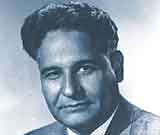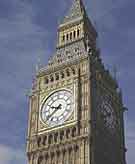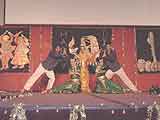 |
Non-Resident accounts for FIIs |
All foreign institutional investors (FIIs) may need to channel their funds through a special non-resident (NR) account as per a proposal made by the Reserve Bank of India. This will give the monetary regulator a stronger means to closely monitor the flow of FII investments to trace if undesirable funds are coming into India through any of them. The account could be a sort of Current Account, unlike the two types of savings deposit accounts currently available to non-resident Indians. The latter two are: the Non-Resident (External) Rupee Account, available in Indian rupees and the Foreign Currency Non-Resident (Bank) account, available in the prominent international currencies. As of now, there are no restrictions on the type of accounts that an FII can open in the country. Transactions in such accounts would be more open to a regulatory glare, according to the proposal. This would also make it possible to keep a track on the movement of funds through sub accounts and the participatory notes issued by FIIs without disturbing the quantum of such flows, which has been rising sharply.
Meanwhile, the Indian stock markets continue to lure FIIs in a big way. In the first eight months of the current fiscal, a total of 136 new FIIs registered themselves with the Securities and Exchange Board of India. In November alone, 17 new FIIs registered with SEBI, taking the total number of FIIs in the Indian market to 820. |
|
 |
US Congress authorizes funds for Saund’s portrait |
The US House of Representatives has authorised funds for commissioning a portrait of late lawmaker Dalip Singh Saund, the first Indian American elected to that body. Congressman Joe Wilson, a Republican from South Carolina, had introduced a resolution in January this year to put up a portrait of Saund in the US Capitol building in recognition of the California legislator’s legacy as the first Asian American to be elected to the national legislature back in 1956.
The portrait will be completed in approximately one year, followed by an unveiling ceremony on Capitol Hill.
The late Saund was elected three times to the House from California, beginning in 1957. Born in 1899, in Chhajulwadi, Punjab, Saund immigrated to the US, got a PhD in mathematics from the University of California, Berkeley, in 1924, and was president of the Hindustan Association of America as a student there.
He was a successful farmer for nearly 30 years in Imperial Valley, California, and from 1946, played an important role in ending restrictions that prohibited Indian immigrants from becoming naturalised citizens. In 1952, Saund was elected justice of the peace in Westmorland, California. A post office in California state has already been named after him.
|
|
 |
Indian IT workers flooding UK on temporary permits |
Migration of Indian techies to London is climbing. A London-based IT association has claimed that Indian IT workers are flooding the UK on temporary permits, undercutting local wages and raising prospects of a homegrown skills shortage.
“Wages are being undercut by companies bringing over Indian workers, who are put up in hostels and paid poorly,” Ann Swain, Chief Executive of the Association for Technology Staffing Companies (ATSCo) told the Daily Telegraph. According to her, salaries for certain IT workers have fallen in recent months, thanks to the deluge of low-cost Indian tech pros.
Home Office immigration figures show that 21,448 foreign IT workers have been issued work permits this year, an increase of 15 per cent on 2004 and almost double the level five years ago. Of those, 85 per cent now come from India. Deloitte Consultancy has predicted that 2 million jobs currently based in Western economies will migrate to India by 2008.
IBM, LogicaCMG, Accenture and CapGemini all transfer Indian workers to the UK for projects, as do Indian consulting firms TCS and Infosys. One of the real reasons why companies are turning to people from India is that UK graduates cannot compete with the quality of India’s technology graduates. |
|
 |
American desi fusion band to hit dance floors in India |
Dhamaal Soundsystem, one of America’s most vibrant South Asian club performers and music bands, is currently touring India, and plans to set dance floors on fire in Mumbai, Goa and New Delhi.
The San Francisco-based group, which is a rage among alternative and South Asian music lovers in the US, consists of 20-odd members, including technicians, who trace their roots to different parts of the Indian subcontinent and Sri Lanka.
According to its founder, Maneesh Kenia, Dhamal will showcase South Asian or sub-continental music, including sufi, Hindustani and Carnatic classical with a Western perspective.
|
|